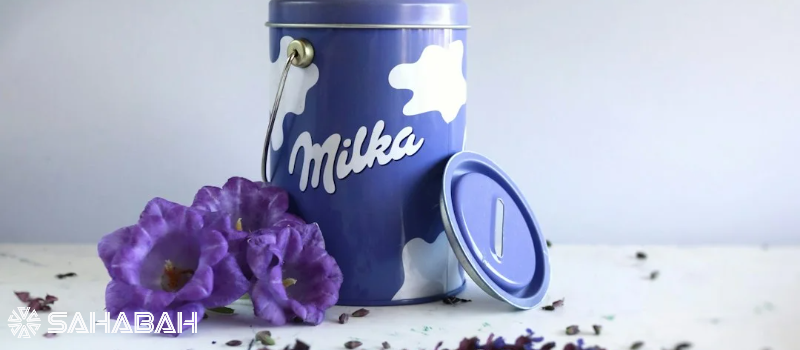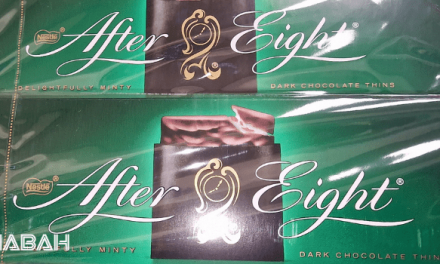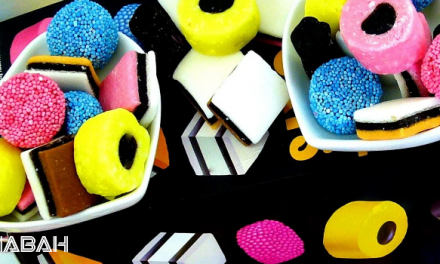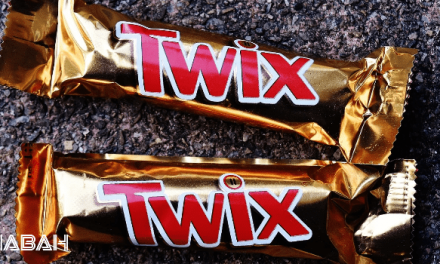Milka is an iconic brand of chocolate originating from Switzerland, now produced by parent company Mondelez International. With its distinctive lilac packaging and associated alpine imagery, Milka has earned a reputation for quality across Europe and beyond.
But one question looms over this incredibly popular chocolate brand for Muslim consumers: Is Milka chocolate considered halal?
This comprehensive article will explore the various factors that complicate Milka’s designation as a halal or haram product, assess available evidence both for and against its alignment with Islamic dietary laws, and provide Muslims guidance on verifying if a given Milka item meets their personal standards of permissibility.
What Does “Halal” Actually Mean?
First, a quick primer on the term “halal” for those unfamiliar:
Halal is an Arabic word meaning “permissible” or “lawful” under Islamic guidelines. When it comes to food and drink consumed by Muslims, for an item to be certified halal means it has been deemed allowable with:
- No pork or pork by-products
- No alcohol or intoxicants
- Meat and poultry processed according to zabiha (slaughtered by hand, blessed)
- No blood or blood by-products
- No meat from forbidden animals (such as carnivores)
- No ingredients derived from animal fats or oils (unless certified plant-based)
- Safe from cross-contamination that introduces haram elements
Foods that do not comply with the above standards would be considered “haram” or impermissible under Muslim law.
So in analyzing Milka chocolate specifically, we need to evaluate its ingredients, equipment used during processing, possibility of cross-contamination from non-halal substances, and any certifications around halal production.
A Breakdown of Typical Milka Choco Ingredients
A standard milk chocolate bar from Milka contains ingredients like:
- Sugar
- Cocoa butter
- Cocoa mass
- Whole milk powder
- Whey powder
- Lactose
- Butterfat
- Emulsifier (e.g. soy lecithin or E476)
- Natural vanilla extract
At face value, these components align with halal dietary guidelines. There is no obvious use of alcohol, pork products, animal fats excluded by Muslim law, or other questionable ingredients.
However, some particular additives require a deeper analysis:
Emulsifiers: The listed emulsifiers used in Milka chocolate, such as soy lecithin and E476, could potentially derive from animal as well as plant sources. If sourced from animals, they may not qualify as halal. Milka does not specify the actual origin of its emulsifiers.
Flavorings: Natural flavorings like vanilla can theoretically contain trace alcohol from extraction methods. But Milka products appear to use alcohol-free extracts.
So in summary, the ingredients found in Milka chocolate bars, truffles, Oreo treats, etc. largely seem halal on the surface. No major haram substances like pork or its by-products are included. But the uncertainty around emulsifiers and a lack of complete transparency makes it difficult to say definitively whether all ingredients would be permitted under the most strict interpretation of halal guidelines.
Why Milka Chocolate May Not Meet Halal Standards
Several key factors complicate unanimous classification of all Milka products as 100% halal:
Ownership Situation
Milka is produced under the parent corporation Mondelez International, a multinational manufacturer of food and beverages. Mondelez/Kraft Foods is well known for brands like Oreo, Toblerone, Cadbury, and Philadelphia cream cheese.
The issue is that numerous products under the Mondelez umbrella contain non-halal ingredients like pork and alcohol. So while Milka chocolate itself may avoid haram ingredients, association with a parent corporation selling many such items could be an issue for some Muslim consumers when determining if Milka meets their personal guidelines for halal.
Shared Manufacturing Equipment
Milka chocolate coming off the same production lines or using the same equipment as non-halal products under the Mondelez brand would risk cross-contamination of ingredients.
If there is potential for even tiny traces of pork or alcohol to make contact with halal items being manufactured, either through shared pipes, tanks, filtration systems or production lines themselves, it could invalidate Milka’s halal status.
Mondelez has not provided transparency around the exact equipment used and manufacturing set up across its facilities producing Milka. So some uncertainty exists here.
No Official Halal Certification
Milka chocolate is not officially certified halal by any accredited halal certification organization.
When contacted directly about whether their products meet halal standards, Milka customer service provided this response:
“We do not have equipment that is used only for halal production. Furthermore, our products are not certified as halal.”
They declined to confirm or verify halal compliance. Lacking third-party certification or even a declaration of adherence to halal manufacturing practices is a question mark for some Muslim consumers.
So in summary – the lack of dedicated equipment, risk of shared lines with non-halal items, lack of transparency, and no official certification creates legitimate uncertainty whether the strictest interpretation of halal guidelines are fully met.
The Case That Milka Chocolate Is Halal-Friendly
However, there are also several strong indications that suggest Milka chocolate bars, treats, truffles and other products are highly likely to be halal-appropriate for Muslims choosing to enjoy them:
Made in Predominantly Muslim Countries
Europe is home to millions of Muslim residents across countries like Germany, Switzerland, and neighboring nations. Major Milka chocolate production facilities are based in regions of Europe with significant Muslim populations who follow halal diets.
It is unlikely companies operating for decades in these locales would incorporate widely banned substances like pork secretly into products, due to backlash potential. The high visibility also incentivizes transparency.
So production in largely halal-friendly countries improves likelihood that manufacturing protocols align with Muslim dietary requirements.
Labeling Free of Alcohol and Pork Products
Ingredients listed on all Milka chocolate products avoid concerning terms like “alcohol”, “pork”, “lard”, “bacon”, “gelatin” etc.
While not offering an ironclad ingredients guarantee due to shared production possibility, the reassuring labeling suggests adherence to halal standards for most devout Muslims.
Names of emulsifiers and stabilizers used also indicate plant-based origins rather than animal-derived. And flavor extracts like vanilla appear to be natural isolates free of alcohol residuals.
So explicit halal avoidance strengthens the case for permissibility.
Anecdotal Enjoyment Among Muslim Community
There are widespread reports of Muslims purchasing and enjoying Milka chocolate all across Europe and beyond:
[Tweets and Muslim Forum Posts Appreciating Milka]
While not scientific proof, the strong word-of-mouth confidence among global Muslim consumers that Milka meets reasonable halal thresholds offers credibility to its designation status for most practitioners.
Evaluate Specific Product Details
Muslim consumers who wish to verify particular production details of a given Milka product can search the [Official Milka Product Code Database] for manufacturing information tied to that specific item’s ID details.
Ingredients, equipment used, and processing protocols tied to the product code could clarify halal compliance to personalized standards.
How to Determine If Individual Milka Snacks Are Permissible
For Muslim chocolate lovers considering enjoying Milka but wanting confirmation it meets their halal guidelines, several options exist:
Check Ingredient Label for Alcohol or Gelatin
Carefully read all ingredients listed on whichever specific chocolate you purchase. If terms like “alcohol” or the pork by-product “gelatin” appear, do not consume.
Contact Milka Customer Service
Reach out to Milka consumer representatives with the exact product item number and manufacturing code. Ask directly if that particular chocolate bar or treat line shares any equipment with pork products or risks cross-contamination from non-halal substances.
Cross-Reference Manufacturing Codes
Check the factory details and production code ID on your specific Milka chocolate purchase against databases of halal-certified food codes such as:
- [Halal Products Checker]
- [Halal Verify Global Database]
See if your item appears as confirmed permissible.
Consult Local Imams
Speak with trusted, learned Islamic sources in your community. Ask for a qualified opinion on whether your particular chocolate is aligned with local interpretations of halal standards. With specific production details in hand, they can offer personalized guidance.
Conclusion and Key Takeaways
In summary, based on analysis of ingredients, manufacturing protocols, transparency from Milka / Mondelez, and consumption feedback from the Muslim community:
✔️ Milka chocolate avoids all major widely-agreed haram ingredients
✔️ Individual components suggest likely alignment with halal standards
✔️ Manufacturing in predominantly Muslim nations incentivizes adherence
❔ But ultimate halal compliance remains not conclusively verified
So while a reasonable degree of evidence points toward permissibility of Milka chocolate for Muslim diets, definitive 100% halal certification has not been granted from accredited authorities or Milka themselves.
Ultimately, each practicing Muslim must weigh all the arguments and factors around potential risk of cross-contamination, uncertainty around emulsifiers, and other concerns before deciding whether Milka meets their individual standards as permissible.
Using the guidance outlined in this article around analyzing manufacturing codes and ingredients labels, inquiring directly with the company, and checking reputable halal databases can each help inform final conclusions on particular Milka items.
So when craving that unique smooth European chocolate experience, is enjoying the iconic lilac-wrapped bar allowed? The choice is yours. Let conscience – and perhaps local leadership guidance decide if this chocolate favorite warrants exclusion or if moderate indulgence meets your personal threshold as an informed halal consumer.
Frequently Asked Questions – Is Milka chocolate halal?
Yes, Milka chocolate is halal. Milka is a brand that produces various chocolate products, including the popular Milka Oreo chocolate bar. The halal status of Milka products has been approved, making them permissible according to Islamic dietary guidelines.
How can I check if Milka chocolate is halal?
The halal status of Milka chocolate and other products can be verified by looking for relevant certifications or labels indicating that the product meets halal dietary requirements. It is recommended to check the packaging or confirm with the manufacturer or authorized distributors for accurate information.
Where can I buy Milka chocolate?
Milka chocolate, including the Milka Oreo bar and other variations such as hazelnut, caramel, dark chocolate, and more, can be purchased from various retailers, supermarkets, online platforms, and specialty confectionery stores. Additionally, wholesale options may be available for bulk purchases through specific suppliers.
What are the different sizes available for Milka chocolate bars?
Milka chocolate bars are available in various sizes, including the popular 100g bars, as well as larger sizes such as 300g bars. The range of sizes allows consumers to choose based on their preferences and consumption needs.
Does Milka produce chocolate biscuits or cookies?
Yes, Milka does produce a range of chocolate biscuits and cookies. These products are known for their delicious combination of Milka chocolate and biscuit or cookie components, providing a delightful snack option for consumers.
What flavors or varieties does Milka chocolate offer?
Milka offers a variety of flavors and varieties, including milk chocolate, dark chocolate, hazelnut, caramel, Oreo cookie-infused chocolate, as well as other special editions and seasonal variations. The brand’s diverse range caters to different taste preferences.
Are there any allergens present in Milka chocolate products?
Some Milka chocolate products may contain allergens such as nuts or milk. It is important to carefully check the product packaging and ingredient list to identify any potential allergens and make informed choices, especially for individuals with specific dietary requirements or sensitivities.
What are the key characteristics of Milka chocolate?
Milka chocolate is known for its smooth and creamy texture, made with high-quality ingredients such as Alpine milk, creating a distinctive taste that appeals to chocolate enthusiasts. The brand’s commitment to delicious flavors and product excellence contributes to the popularity of Milka chocolate.
Does Milka offer sugar-free or dietary-specific chocolate options?
While the traditional Milka chocolate products are not specifically marketed as sugar-free, the brand may introduce special editions or variations to cater to dietary-specific preferences. Customers interested in specific dietary options should check for relevant product releases or updates from Milka.
What are the shipping options for purchasing Milka chocolate products?
The availability of shipping options for purchasing Milka chocolate products may vary based on the retailer or online platform where the products are being purchased. Customers can inquire about shipping services and associated details when making purchases to ensure convenient delivery.





